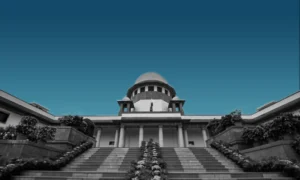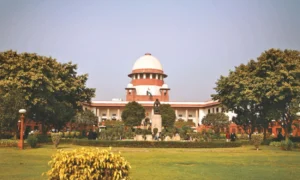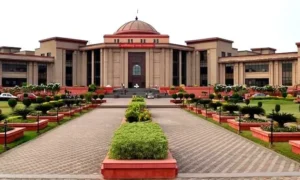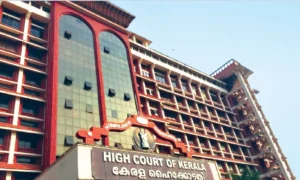
High Court Fines Advocate
Hyderabad, July 5: In a strongly worded order, the Telangana High Court has imposed a fine of ₹50,000 on an advocate for prolonging a property dispute case that has remained unresolved for over 25 years. The case pertains to evacuee properties purchased by a private individual in 1962, but due to official negligence, sale certificates for approximately 43 acres were never issued.
Justice C.V. Bhaskar Reddy expressed serious concern over the prolonged litigation, which has affected three generations of the petitioner’s family. The court also directed the officer concerned under the Evacuee Interest (Separation) Act to pay the cost into the Sainik Welfare Board, Telangana, or the Armed Forces Flag Day Fund, Telangana, within four weeks.
The case was filed by Abul Qair Naseeruddin Kamran, a resident of the United Arab Emirates (UAE), whose grandmother, Saleha Fatima Begum, had purchased evacuee land across several villages in the former Jangaon taluk of Warangal district through a registered sale certificate dated December 17, 1962, by paying ₹38,415.
The properties originally belonged to Saleha’s brothers, who migrated to Pakistan after the partition, while she continued to reside in India. Due to what the court described as “mistake or negligence,” about 43 acres of land were excluded from the sale certificate. Since then, her family has made multiple attempts to rectify the oversight, without success.
Despite a 2000 ruling by a division bench of the High Court directing the petitioner to approach the competent authority, and a 2002 status quo order by the said authority, no further action has been taken to resolve the matter.
Justice Bhaskar Reddy, while announcing the penalty, stated:
“This court cannot ignore the pain endured by three generations of a family contesting for the rightful enjoyment of land they had legally acquired. The sheer bureaucratic delay and third-party interferences have turned this into a grave injustice.”
The case underscores the systemic delays plaguing land disputes and reflects the judiciary’s growing inclination toward penalizing undue litigation and bureaucratic apathy.
This article is published by Crime Today News ©






